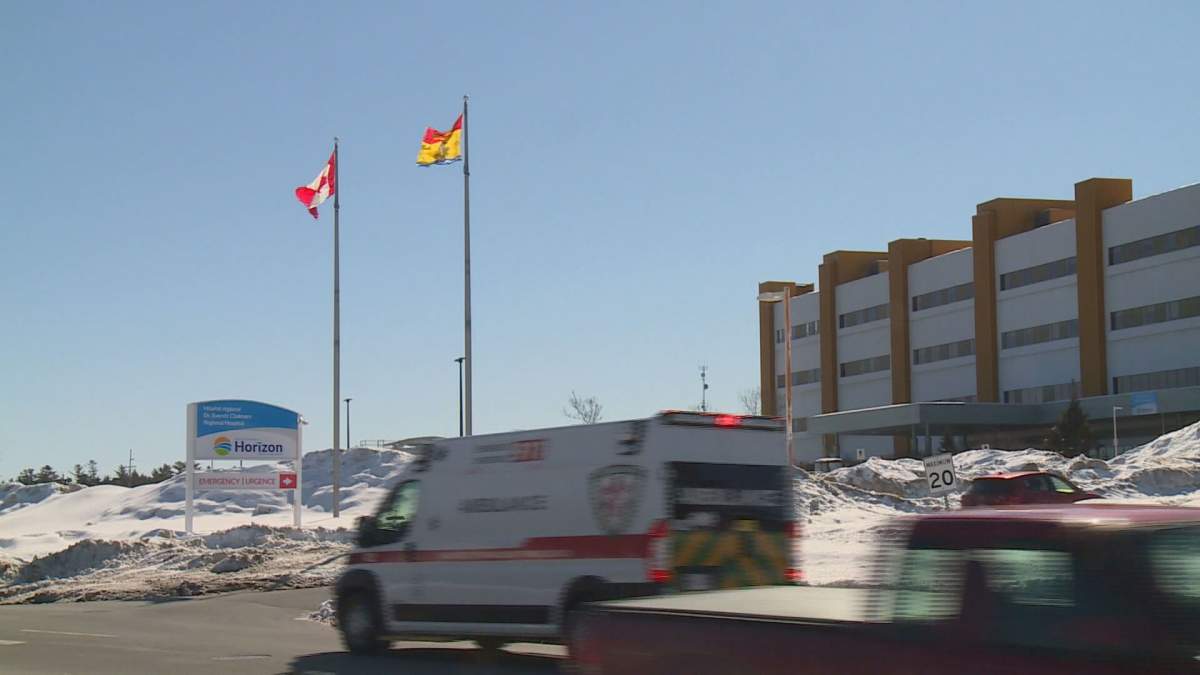As Lexi Daken’s family continues to navigate their grief, they say they’ve met another roadblock in dealing with the province’s health-care system.

Because she was 16 at the time of her death, Lexi’s medical file is protected by provincial privacy legislation – so her family can’t see it.
“It gives us a little bit of a feeling that something’s in there that they don’t want us to see,” says Shawna Betts, Lexi’s mom.
It’s been two weeks since Lexi died by suicide, days after she sat in the Doctor Everett Chalmers Hospital emergency room for eight hours asking for help.
Betts went to that same hospital Tuesday for what she expected to be some quick paperwork – she says she needed some of Lexi’s records for insurance purposes.
“We just thought this was just, check this off the list,” she says.
“We thought it would be super easy.”
Speaking to Global News Wednesday, Betts says that trip turned into a two-hour stopover at the hospital.
She says she was pulled into a meeting with three Horizon Health staff members who explained to her that the request had to be denied under the law.
“I just couldn’t really believe that a parent can’t get their child’s medical file,” she says.

Get weekly health news
“Chris (Lexi’s father) and I have so much stuff on the go right now.
“With the child and youth advocate, dealing with our children who are struggling with the loss of their sister.”
Global News reached out to Horizon Health for clarification on why Betts was denied and was referred to provincial legislation.
“The release of health records is determined in accordance with our established policies and procedures, and in accordance with the provisions of the Personal Health Information Privacy and Access Act,” writes Kelly Chase, chief privacy officer with Horizon.
When it comes to medical care, a New Brunswicker is considered an adult when they reach 16.
At that point, parents are blocked from accessing a child’s medical records, even if they die.
A person’s files are usually only unlocked if necessary for notifying next of kin, in cases where estate matters deem it necessary and then 50 years after someone’s death.
Experts say that all makes sense.
“I think in this particular case, people are very sympathetic with the parents and their desire to have some information and some closure but the law’s quite clear,” says UNB associate law professor Hilary Young.
“In general it makes sense that, once you reach a certain age or level of maturity, health information is so private.”
Young points out that if a young adult’s medical records could be accessed by a parent, they might not be completely honest with a doctor at all times.
She says for a family like Lexi’s, the only option might be to challenge that in court.
Betts says they’ve got a backup plan, though.
She says Child, Youth and Seniors’ Advocate Norman Bossé has told the family he’ll have access to the files as part of his provincewide review into mental health crisis care.
She says he’s already started and, if they’re not able to get the files themselves, he’ll give them to the family.
“I’m like a dog with a bone,” Betts says.
“I will get my hands on those files.
If you or someone you know is in crisis and needs help, resources are available. In case of an emergency, please call 911 for immediate help.
For a directory of support services in your area, visit the Canadian Association for Suicide Prevention.
Learn more about how to help someone in crisis here.









Comments